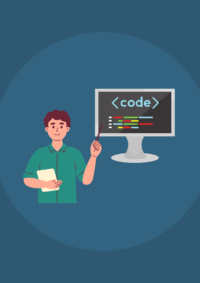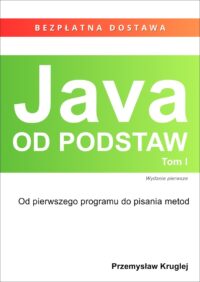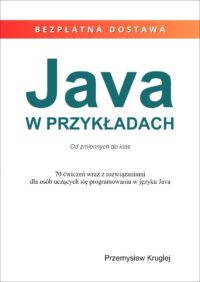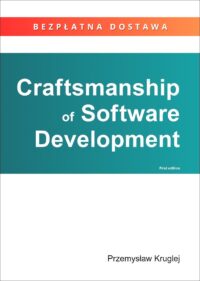Sklep
Wyświetlanie wszystkich wyników: 9Posortowane według ceny: od wysokiej do niskiej
-
Promocja!

Korepetycje
Pierwotna cena wynosiła: 199,00 zł.149,00 złAktualna cena wynosi: 149,00 zł. Dodaj do koszyka -
Promocja!

Java od podstaw – Tom 1 – książka papierowa + e-book PDF
Pierwotna cena wynosiła: 119,99 zł.89,99 złAktualna cena wynosi: 89,99 zł. Dodaj do koszyka -

Java od podstaw – Tom 1 – książka papierowa
79,99 zł Dodaj do koszyka -

Java od podstaw – Tom 1 – e‑book PDF
69,99 zł Dodaj do koszyka -
Promocja!

Java w przykładach – książka papierowa + e‑book PDF
Pierwotna cena wynosiła: 69,99 zł.49,99 złAktualna cena wynosi: 49,99 zł. Dodaj do koszyka -

Java w przykładach – książka papierowa
44,99 zł Dodaj do koszyka -

Java w przykładach – e‑book PDF
34,99 zł Dodaj do koszyka -

Craftsmanship of Software Development – książka papierowa
19,99 zł Dodaj do koszyka -

Craftsmanship of Software Development – e‑book PDF
14,99 zł Dodaj do koszyka
